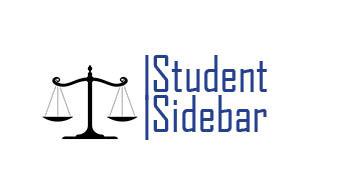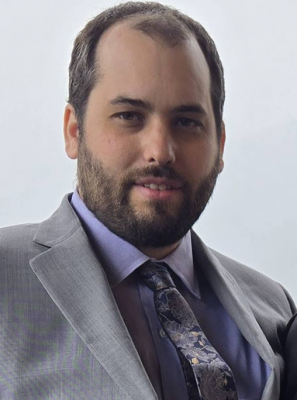
UConn Law Library is excited to launch a new series of student-authored posts with a thought piece on a timely topic – presidential immunity. In this inaugural post, UConn Law 3L William Roberts comments on the current debates surrounding the concept of presidential immunity. As courtrooms and headlines continue to spotlight this issue, this piece offers a sharp-well-researched overview that invites readers to think critically about the limits of executive power. We are proud to feature this work and look forward to sharing more student perspectives in the weeks ahead.

I am a Teacher’s Assistant for Professor Chill’s Legal Profession course. We are required to take a course in professional responsibility because in 1974 the ABA mandated this course in response to the Watergate scandal.1 In the Watergate scandal, President Nixon ordered the Attorney General to fire the special prosecutor to protect the President’s allies from a criminal investigation. Twenty-nine lawyers were convicted or pleaded guilty to perjury, fraud, obstruction of justice, campaign law violations, and conspiracy. According to Lerman, “[t]he nation was horrified to find that so many elite lawyers had facilitated massive corruption in government.”2 Professional responsibility courses were deemed necessary to “prevent another shameful episode.”3
Prosecutorial independence has been a critical component for upholding the rule of law. Removing politics from prosecution was a central reason in creating the Department of Justice to begin with and prosecutorial independence is deeply entrenched in the nation’s history.4 And yet, in what can only be described as a bullshit5 opinion, the so-called originalists of the Court—Roberts, Thomas, Alito, Gorsuch, and Kavanaugh—obliterated the very concept of prosecutorial independence in their presidential immunity ruling by overtly stating for the first time in history that “[t]he President may discuss potential investigations and prosecutions with his Attorney General and other Justice Department officials. . . .”6 The Roberts Five decided this specifically in reference to an allegation that Trump repeatedly threatened to fire the Acting Attorney General for personal political reasons—the very same action that horrified the nation and forced Nixon to resign!
The dissent laid out the stark consequences for allowing such an irresponsible vision of Presidential immunity. Sotomayor writes, “[t]his new official-acts immunity now ‘lies about like a loaded weapon’ for any President that wishes to place his own interests, his own political survival, or his own financial gain, above the interests of the Nation.”7 This warning is entirely obvious to anyone who values the rule of law. Indeed, not three months into his second term President Trump has already realized this warning. He—very expressly and very publicly—directed the DoJ to investigate private citizens that Trump personally disagrees with. The first is Miles Taylor, who exercised his First Amendment rights and published an anonymous book that said he was part of the secret “resistance” to President Trump. 8 The second is Chris Krebs, a former Trump official in his first term who took his oath to the Constitution seriously and refused to denounce the legitimacy of the 2020 election that Trump lost. 9 The Roberts Five, the White House, and Trump’s sycophants will have us believe that we must take Trump’s word at face value, that these orders are for the best interest of the nation to punish the definitely real crimes the individuals have committed. Bullshit. 10 There is zero evidence that either of them committed any sort of crime. 11 Indeed, Trump paradoxically accuses Miles Taylor of simultaneously both disclosing sensitive information and fabricating those stories he disclosed. The 2020 election has been endlessly litigated and zero evidence has ever been produced of election-determinative impropriety. The real reason these two are being targeted is because Trump personally dislikes them. We do not have to pretend that this is anything but political persecution.
It cannot be overstated how instrumental the Presidential Immunity decision was in creating this overt politicization of the DoJ. In a Reuter’s interview in 2018, Legal Ethics law professor Rebecca Roiphe of New York Law School said that the norm of prosecutorial independence was “stronger than people make it out to be.” 12 She noted Deputy AG Rod Rosenstein’s efforts to preserve the principle of DoJ independence, and stated that she believed the institution was strong enough to withstand Trump’s attacks. Roiphe’s prediction turned out to be mostly correct. Trump did, in fact, try many times to direct investigations into his political opponents in his first term. 13 While some investigations did indeed occur, such as against Andrew McCabe, most of them did not, resisted by DoJ officials who believed in the importance of prosecutorial independence and the rule of law. And certainly, Trump never signed an Executive Order officially directing the DoJ to investigate individuals.
However, both Roiphe and Fordham Law Ethics Professor Bruce Green admitted that in 2018 the concept of prosecutorial independence was not yet settled by Supreme Court precedence. Well, the Roberts Five settled the issue. And now we’re here. Second term Trump wasted no time in starting politically motivated criminal prosecutions green lit by the Supreme Court.
How can any DoJ official resist now when the Supreme Court explicitly abolished the concept of prosecutorial independence that our nation cherished for so long? The ramifications of the immunity decision are as damaging as they are obvious.
The oldest of the Roberts Five is Justice Clarence Thomas, born in 1948. He graduated from Yale Law School in 1974, the same year the ABA mandated professional responsibility courses. Perhaps Thomas was not required to take a professional responsibility course, but all the others certainly were. By judicial fiat, the Roberts Five have created a whole new wave of political corruption by lawyers, completely ignoring the lessons learned from Watergate. Only this time, I fear the nation at large will not recoil in horror as we did half a century ago. At the very least, I will.
About the Author
William Roberts is a 3L at UConn School of Law. He has both undergraduate and graduate degrees in chemistry and will be entering the field of patent law upon graduation.
References
1Lisa G. Lerman, et al., Ethical Problems in the Practice of Law 44–46 (2023).
2 Id.
3Id.
4Andrew Nisco, Note, The Independent Attorney General: An Analysis of Why the Office Should be Insulated from Presidential Political Imperatives, 36 Geo. J. Legal Ethics 743, 759 (2023) (“[P]rosecutorial independence was of such paramount importance that Congress created a department to insulate prosecutors from political influence.”); Bruce A. Green & Rebecca Roiphe, Can the President Control the Department of Justice?, Ala. L. Rev., Forthcoming, Fordham Law Legal Studies Research Paper, at 38–68 (Feb. 20, 2018) https://papers.ssrn.com/sol3/papers.cfm?abstract_id=3126856 (detailing the nation’s history of prosecutorial independence).
5If you’ll forgive the vulgarity, this term refers to “statements by a speaker who is indifferent to the truth or falsity of what is espoused.” Michael L. Smith, Is Originalism Bullshit?, 28 Lewis & Clark L. Rev. 779, 788 (2025) (quoting Harry G Frankfurt, On Bullshit, in The Importance of What We Care About: Philosophical Essays 130 (1988)). The speaker is not misrepresenting facts, which may or may not be true, but is instead misrepresenting the speaker’s intentions. Id. In the legal context, Smith argues this term applies to decisions in which the Court has started with a conclusion in mind and worked backwards from there. See id. at 809–10 (“Unlike the genuine interpreters, each of these [disingenuous] actors had a conclusion in mind before embarking on their originalist analysis.”) The dissent to the immunity case discusses the majority’s complete lack of historical and textual basis for their decision. Trump v. U.S., 603 U.S. 593. 659–67 (2025) (Sotomayor, J., dissenting). This strongly suggests that the majority—who often stylize themselves as originalists and/or textualists—indeed started out with the result in mind, “Trump must be immune” and worked backwards from there.
6Trump v. U.S., 603 U.S. 593, 620 (2024).
7Id. at 684 (Sotomayor, J., dissenting) (quoting Korematsu v. U.S., 323 U.S. 214, 246 (1944)).
8White House, Presidential Memoranda, Addressing Risks Associated with an Egregious Leaker and Disseminator of Falsehoods, April 9, 2025 https://www.whitehouse.gov/presidential-actions/2025/04/addressing-risks-associated-with-an-egregious-leaker-and-disseminator-of-falsehoods/.
9White House, Presidential Memoranda, Addressing Risks from Chris Krebs and Government Censorship, April 9, 2025 https://www.whitehouse.gov/presidential-actions/2025/04/addressing-risks-from-chris-krebs-and-government-censorship/.
10See supra, note 5.
11Aaron Blake, Trump Crosses the Rubicon on Ordering Investigations of Foes: About as Stunning as the Concept of Trump’s Executive Actions Targeting Chris Krebs and Miles Taylor is Their Substance, Wash. Post Online (Apr. 10, 2025) https://www.washingtonpost.com/politics/2025/04/10/trump-doj-ivestigations-krebs-taylor/.
12 Alison Frankel, DoJ Independence, Entrenched and Ingrained, Will Survive Trump: Historian, Law Prof, Reuters (May 21, 2018) https://www.reuters.com/article/world/doj-independence-entrenched-and-ingrained-will-survive-trump-historian-law-p-idUSKCN1IM2DO/.
13Adam Klasfeld, Ryan Goodman, Chronology of a Dozen Times Trump Pushed to Prosecute His Perceived Enemies, Just Security (Sept. 3, 2024) https://www.justsecurity.org/98703/chronology-trump-justice-department/.